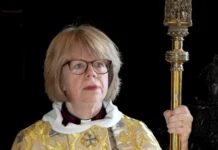The General Synod has called on the Government to allocate more money for palliative care as members voted to reaffirm the Church of England’s opposition to a change in the law on Assisted Suicide.
Following a debate, members backed a Private Member’s Motion (PMM) paying tribute to the ‘enormous and untiring’ efforts of health professionals working in palliative and end of life care.
They called on the Government to guarantee adequate funding and resourcing of palliative care services to ensure the highest possible standards of care for all. Members further affirmed that the law on Assisted Suicide should remain unchanged.
General Synod member Dr Simon Eyre, from the Diocese of Chichester, introducing the PMM, called for the Government to ensure adequate funding for hospices over the next decade.
He said palliative care was currently ‘insufficiently comprehensive’ with only one palliative care consultant per 100,000 of the population.
“Our response needs to be an honest one, that palliative care can fail to deliver its best at times but it should also be our logical conclusion that we need to seek ever improving excellence in palliative care services, through training, research and investment, rather that enacting new legislation on Assisted Suicide as a route out of the problem,” he told the Synod.
Following a debate where members heard powerful personal testimonies, the Synod observed a period of prayer before voting.
The full wording of the Private Member’s Motion is below:
‘That this Synod: (a) appreciate the enormous and untiring efforts of health professionals, including healthcare chaplains, in constantly developing and maintaining the excellence of palliative and end of life care provision in this country;
(b) call on Her Majesty’s Government to guarantee and expedite the adequate funding and resourcing of palliative care services within the NHS to ensure that the highest possible standards of care are achieved and made universally accessible; and
(c) affirm that the current legislation in relation to Assisted Suicide referenced in Section 2 of the Suicide Act 1961 (and its application through the DPP guidelines) should remain unchanged.’
The voting was 289 in favour, 25 against and 33 abstentions.



